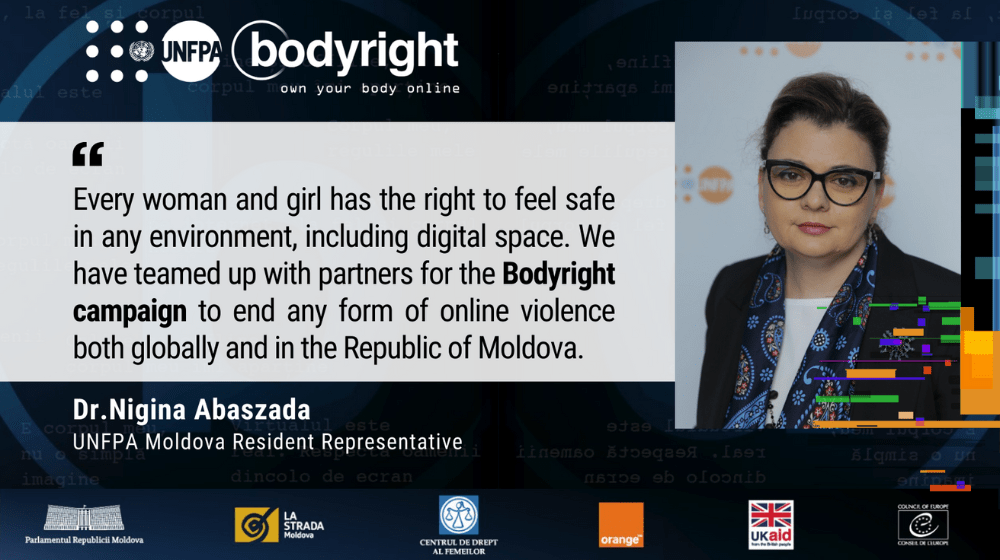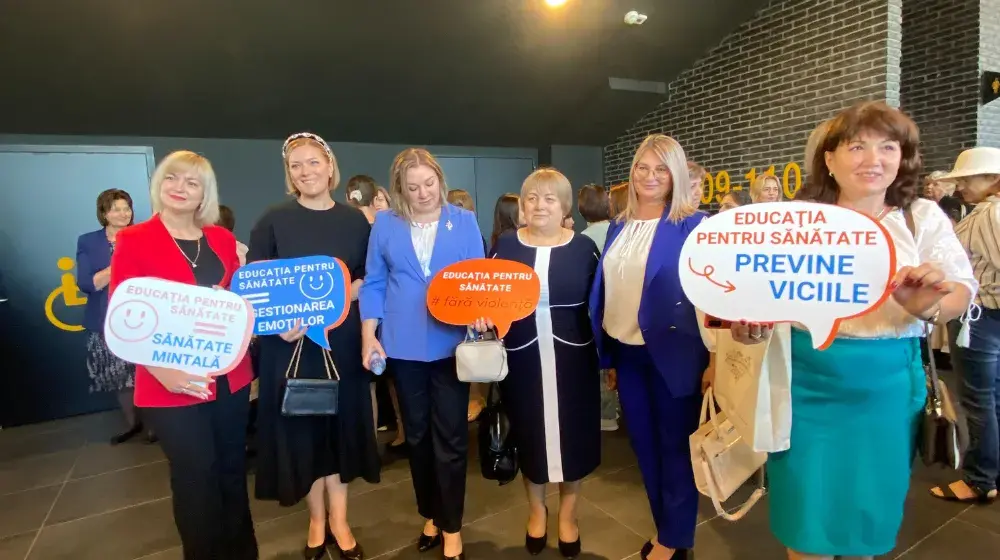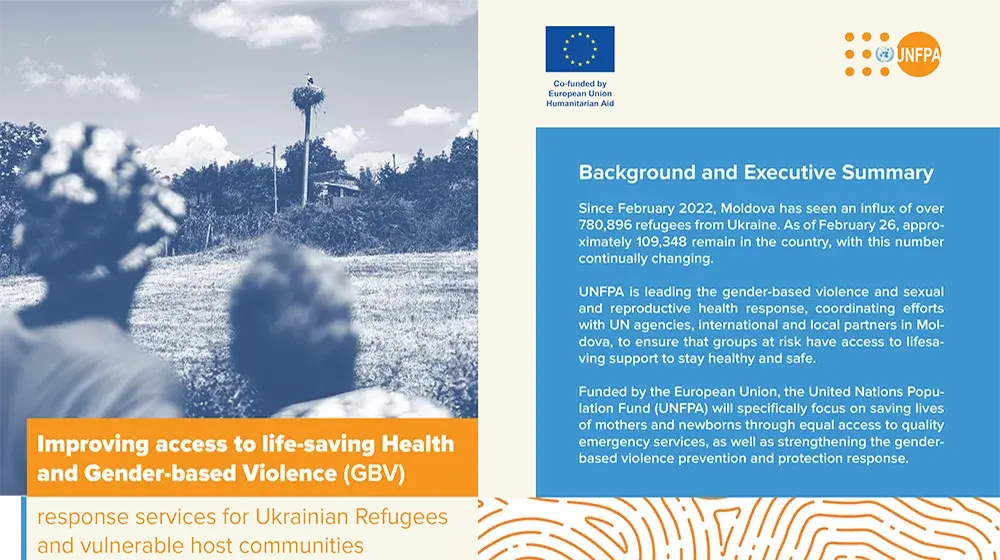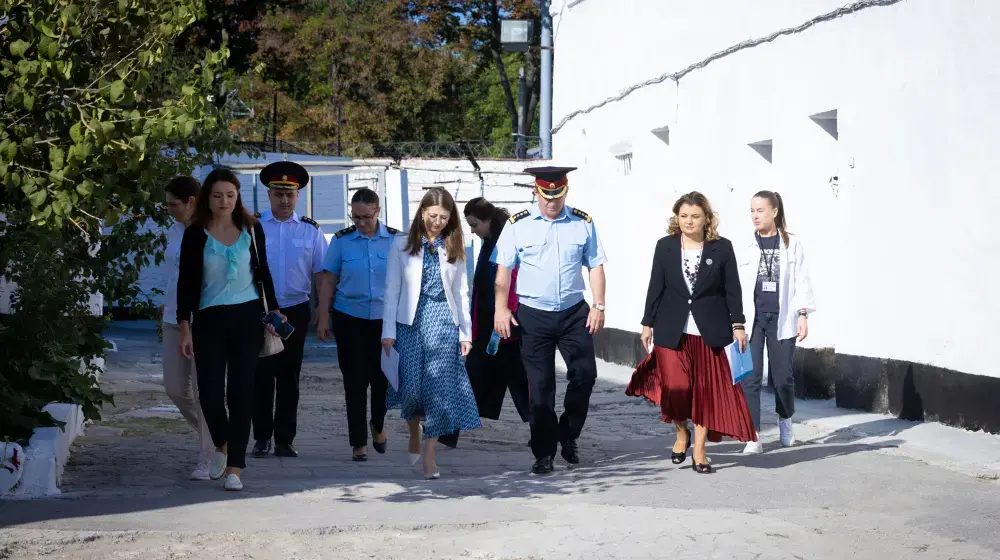Q: Could you tell us why UNFPA launched the Bodyright Campaign in the Republic of Moldova and what it aims to achieve?
Dr. Nigina Abaszada, UNFPA Resident Representative: Did you know that a song or a logo is more protected online than images of your body? Having your image taken, manipulated and shared without permission is a violation of dignity, and leaves a lasting impact just like all forms of gender-based violence. We all deserve safety in both the physical and virtual worlds. UNFPA joins the survivors of violence from all around the world who are stepping up to stop the misuse and abuse and to make technology safe for everyone. The Bodyright campaign is a global movement led by UNFPA to end digital violence, and we’re proud to bring it more boldly to the Republic of Moldova.
Q: Could you elaborate on the global and local context that led to the creation of Bodyright? How pervasive is online violence, particularly in the Republic of Moldova?
Dr. Nigina Abaszada, UNFPA Resident Representative: Globally, 85% of women report witnessing online violence, nearly 40% experienced it personally, according to the Economist Intelligence Unit. This is what Bodyright campaign is all about – it is about filling this gap and creating a safer digital environment for all, especially for teenage girls because in the Republic of Moldova, every second adolescent until the age of 17 admitted that someone unknown has asked him at least once, to send sexual images online, according to our partner La Strada’s study.
Q: The 'b' symbol is a unique concept. Could you explain its significance in the context of Bodyright and how it aims to protect individuals from online violence?
Dr. Nigina Abaszada, UNFPA Resident Representative: Central to our campaign is the 'b' symbol, a new copyright for the human body. This symbol stands as a beacon of respect, ownership, and protection against online violence. The concept of Bodyright draws a parallel with "copyright" – just as copyright protects musical pieces, books, and other materials, there is an equally important need to protect personal images and human bodies on the internet. We all know that any social platform will remove the songs with the copyright, why not do the same for clear cases of online violence and sexual harassment.
Q: The list of digital violence forms is extensive. Could you walk us through some of these forms, especially for our audience who may not be familiar with the technicalities?
Dr. Nigina Abaszada, UNFPA Resident Representative: Based on UNFPA Technical Guidance that you can find on this campaign website, digital violence also known as technology-facilitated gender-based violence is typically highly sexualized and takes many forms including:
- Online sexual harassment
- Cyberstalking
- Image-based abuse, deep fakes
- Sextortion or blackmail
- Doxing
- Hacking
- Hate speech
- Defamation, and many more.
Please follow our social media accounts to learn more about different forms of digital violence.
Q: Partnerships play a vital role in such a new topic as technology-facilitated gender based violence. Tell us more about the alliances that UNFPA plans to build.
Dr. Nigina Abaszada, UNFPA Resident Representative: We are grateful to our partners - the Parliament, the Council of Europe, the UK Government, La Strada, Women’s Law Center and Orange Moldova, women and youth advocates – who will make this campaign a success in the Republic of Moldova. We are also proud to welcome the popular singer Dara who has contributed her voice to the campaign with her personal experience and the song featured in this campaign video. Creative collaborations with influential people like Dara add significant momentum to our collective efforts in advocating for online safety. The Bodyright Campaign launch is a powerful starting point for building partnerships and policy work to close the gaps in legislation and find ways to regulate technology-facilitated gender-based violence in the country. The campaign will then unfold more on the community level via multiple channels and partners.
Virtual violence is violence. Online abuse is abuse. Women and girls have the right to feel safe in all spaces, wherever they are. Let’s work together as part of the Bodyright Campaign to end digital violence globally and in the Republic of Moldova.





